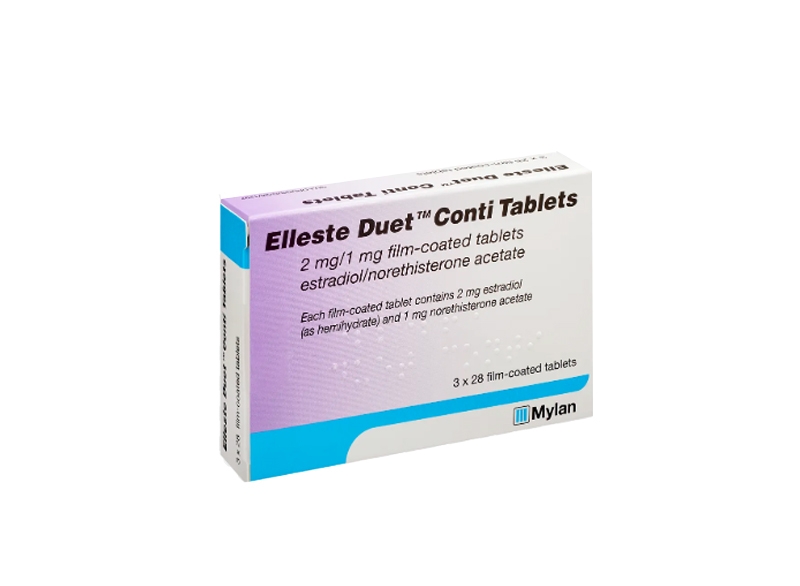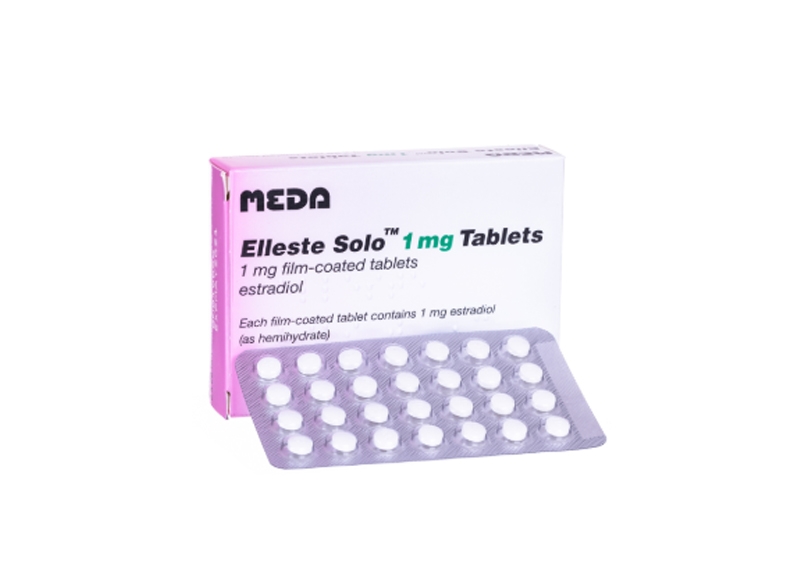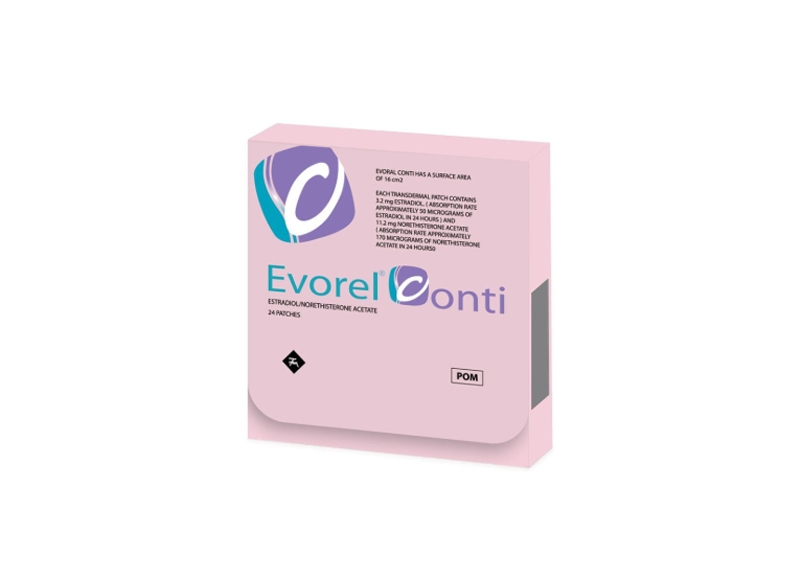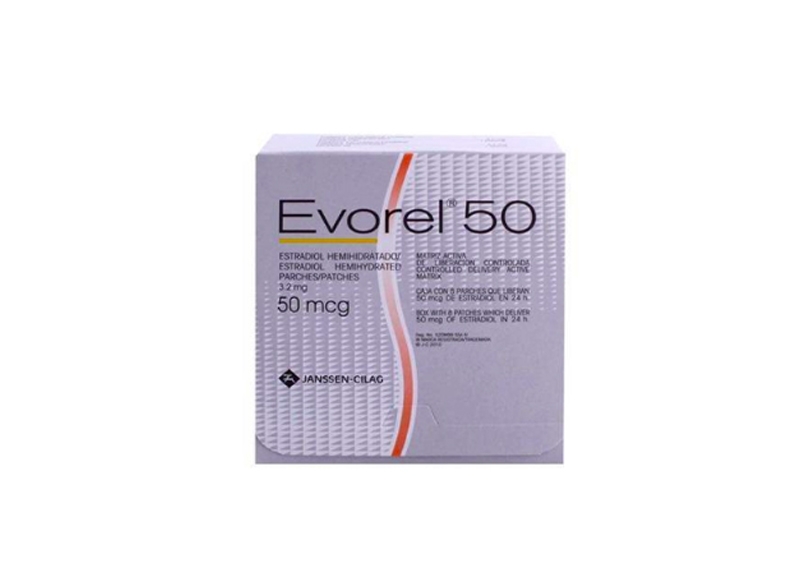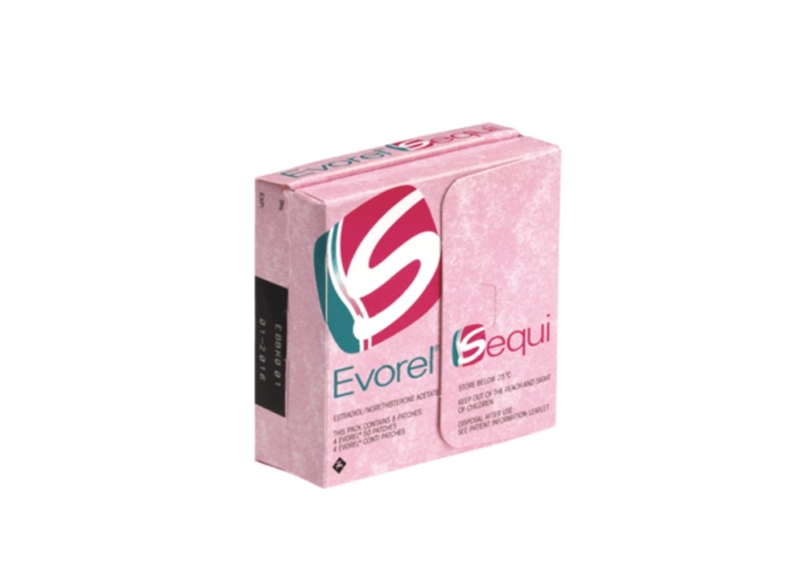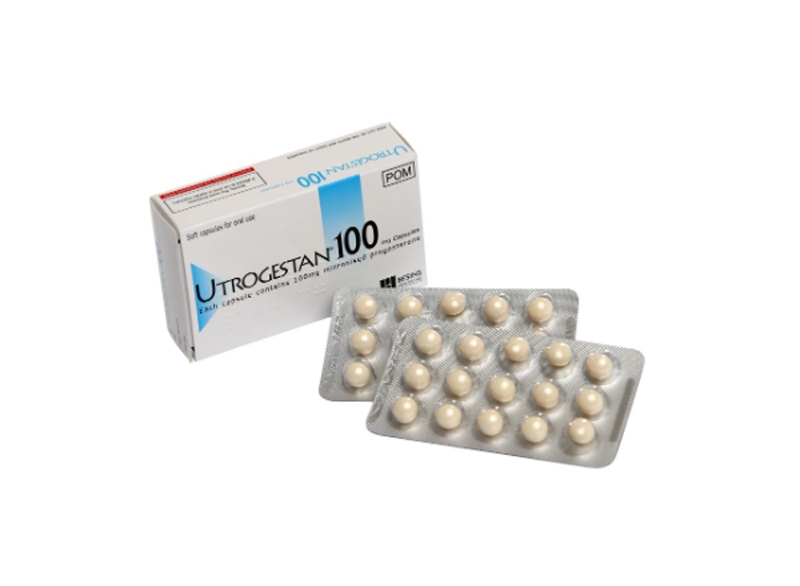How to Order ? Simple.
-

1.
Select Treatment
Choose from our treatment options or speak to the in-store pharmacist for advice
-

2.
Complete Medical Questionnaire
Complete our free online medical consultation to be reviewed by our Clinical Team
-

3.
Collect Medication from Local Pharmacy
We will notify you when your medication is ready for collection
Advice for Menopause
The transition to menopause is often gradual and can begin several years earlier, known as perimenopause. During perimenopause, women may experience irregular periods, fluctuations in menstrual flow, and a variety of symptoms related to changing hormone levels. Common symptoms during this transitional phase and after menopause include hot flashes, night sweats, mood swings, sleep disturbances, vaginal dryness, and changes in libido.
Menopause can also lead to long-term health effects, such as an increased risk of osteoporosis due to declining bone density and a higher likelihood of cardiovascular issues related to lower estrogen levels. Women may also experience changes in body composition, including weight gain, and alterations in skin elasticity and hair health.
Diagnosis of menopause is usually based on symptoms, although blood tests measuring hormone levels can provide additional insight, particularly in cases where women experience symptoms at a younger age or have a family history of early menopause.
Management of menopause symptoms can involve lifestyle modifications, such as regular exercise, a balanced diet rich in calcium and vitamin D, and stress management techniques. Hormone replacement therapy (HRT) is a common treatment option that alleviates symptoms by replenishing estrogen and progesterone but may carry some risks, including the potential for heart disease or certain cancers. Non-hormonal medications and alternative therapies, such as herbal supplements, mindfulness practices, and acupuncture, may also be explored to manage symptoms.
It is essential for women to consult healthcare providers to personalize their menopause management plan, monitor symptoms, and address any concerns regarding health risks associated with menopause. Overall, menopause is a significant life transition that varies widely among women, and with appropriate support and resources, many women can manage their symptoms effectively and maintain quality of life during this phase.
Menopause accompanied by a variety of symptoms that can vary widely in intensity and duration from one woman to another. Here’s a detailed overview of the common symptoms associated with menopause:
1. Hot Flashes
- Description: Sudden feelings of warmth, often accompanied by sweating and flushing of the skin, particularly on the upper body and face.
- Duration: These can last from a few seconds to several minutes and may occur during the day or night (often referred to as night sweats).
2. Night Sweats
- Description: Severe hot flashes that occur during sleep, leading to excessive sweating and the potential for disrupted sleep.
- Impact: Night sweats can contribute to insomnia and overall fatigue due to interrupted sleep patterns.
3. Irregular Menstrual Cycles
- Description: Changes in the frequency, duration, and flow of menstrual periods leading up to menopause.
- Variability: Periods may become closer together or farther apart, lighter or heavier, and may eventually stop altogether.
4. Vaginal Dryness
- Description: Decreased moisture in the vaginal tissue due to lower estrogen levels, which can lead to discomfort or pain during intercourse.
- Associated Issues: Vaginal dryness can also be accompanied by irritation, itching, or increased risk of infections.
5. Mood Changes
- Description: Fluctuations in mood, including increased irritability, anxiety, depression, and emotional instability.
- Mood Swings: These changes may be influenced by hormonal fluctuations as well as life stressors associated with aging.
6. Sleep Disturbances
- Description: Difficulty falling asleep or staying asleep, often related to night sweats and hot flashes.
- Impact: Sleep disturbances can lead to increased fatigue and affect overall well-being.
7. Cognitive Changes
- Description: Issues with concentration, memory lapses, and difficulty focusing, often referred to as “brain fog.”
- Variability: While these are common, they can be temporary and improve with time.
8. Changes in Libido
- Description: Fluctuations in sexual desire or arousal, which may decrease due to hormonal changes and vaginal dryness.
- Impact: This can affect relationships and lead to emotional distress.
9. Physical Changes
- Weight Gain: Increased abdominal fat can occur due to hormonal changes, affecting body composition and metabolism.
- Skin Changes: Decreased elasticity and moisture in the skin may lead to dryness, thinning, and wrinkles.
- Hair Changes: Thinning hair or hair loss, as well as changes in hair texture or growth patterns, can occur due to hormonal shifts.
10. Bone Density Loss
- Description: Decreased estrogen levels can lead to a decrease in bone density, increasing the risk of osteoporosis over time.
- Impact: This may not produce immediate symptoms but can lead to increased fracture risk and other complications later in life.
11. Urinary Symptoms
- Description: Increased frequency of urination, urgency, or discomfort during urination.
- Impact: Some women may experience urinary incontinence, which can affect daily activities and social situations.
12. Breast Changes
- Description: Changes in breast tissue can occur, including tenderness, a decrease in breast fullness, or changes in breast size and shape.
The symptoms of menopause can significantly impact a woman’s quality of life, both physically and emotionally. It is important for women to seek support and discuss their symptoms with healthcare providers to explore appropriate management options, whether through lifestyle changes, medical interventions, or alternative therapies. Each woman’s experience of menopause is unique, and understanding these symptoms is essential for navigating this transitional phase effectively.
Menopause is a natural biological process that occurs as a woman ages, marking the end of her reproductive years. Here are the primary causes and factors associated with menopause:
Aging
- The primary cause of menopause is aging. As women age, their ovaries gradually produce less estrogen and progesterone, the hormones responsible for regulating the menstrual cycle. This decline typically starts in a woman's 30s and accelerates in the 40s, leading to the eventual cessation of menstruation.
2. Hormonal Changes
- The transition into menopause involves significant hormonal changes. The production of estrogen and progesterone decreases, which affects the menstrual cycle and is responsible for many of the symptoms associated with menopause.
3. Perimenopause
- Before menopause, women go through a phase called perimenopause, which can last several years. During this time, hormonal fluctuations can lead to irregular periods and a variety of symptoms. Perimenopause is characterized by varying levels of estrogen and progesterone, contributing to both physical and emotional changes.
4. Genetics
- Genetics can play a role in the timing and experience of menopause. Family history may influence when a woman begins her transition to menopause; for example, if a woman's mother experienced early menopause, she may also be more likely to experience it earlier.
5. Health Conditions
Certain health conditions can lead to early menopause or affect the menopausal transition:
- Autoimmune Diseases: Conditions such as lupus or rheumatoid arthritis can cause premature ovarian failure, leading to early menopause.
- Thyroid Disorders: Both hyperthyroidism and hypothyroidism can influence menstrual cycles and menopausal symptoms.
6. Surgical Causes
- Surgical removal of the ovaries (oophorectomy) leads to immediate menopause, regardless of age, as it halts estrogen production. This may occur as part of the treatment for conditions such as cancer or endometriosis.
- A hysterectomy (removal of the uterus) may also trigger menopause if the ovaries are removed or if the procedure disrupts ovarian function, even if the ovaries themselves remain intact.
7. Chemotherapy and Radiation Therapy
- These cancer treatments can damage the ovaries and disrupt hormone production, potentially leading to premature menopause or inducing menopause during or after treatment.
8. Lifestyle Factors
Certain lifestyle factors may affect the timing of menopause. For example:
- Smoking: Studies suggest that women who smoke may experience menopause earlier than non-smokers.
- Body Weight: Low body weight or eating disorders can influence hormonal balance and the timing of menopause.
- Physical Activity: Regular exercise can have positive effects on overall health but may influence hormone levels and menopause onset in some women.
9. Environmental Factors
- Some studies have investigated the role of environmental toxins (such as pesticides and heavy metals) in influencing menopausal timing, but more research is needed to establish definitive connections.
Menopause is primarily caused by natural aging and the associated decline in hormone production in the ovaries. Various factors, including genetics, health conditions, surgical interventions, and lifestyle choices, can also influence the timing and experience of menopause. Understanding these causes can help women prepare for this transitional phase and seek appropriate care and support when needed.
At Pharmacinta, we provide a range of Hormone Replacement Therapy (HRT) medications. HRT is a common treatment for managing menopausal symptoms by supplementing hormones that decrease during menopause.
HRT can be administered in various forms, including systemic treatments that affect the whole body and localized vaginal therapies specifically designed for urogenital symptoms. Systemic HRT involves medications taken orally or through patches, that relieve multiple menopause symptoms such as hot flashes, night sweats, and mood swings. Benefits of systemic HRT include improved quality of life and increased bone density, which can help prevent osteoporosis. However, it may carry risks, including potential side effects like bloating and headaches, as well as an increased risk of breast cancer, blood clots, and cardiovascular issues, particularly with long-term use.
Vaginal HRT focuses on alleviating vaginal dryness, irritation, and discomfort during intercourse. Vaginal creams contain estrogen and are applied directly to the vaginal area, typically used daily initially before moving to a maintenance dose.
Women considering HRT should consult with their healthcare providers to discuss their symptoms, medical history, and potential risks. Regular follow-up appointments are essential for monitoring treatment effectiveness and managing any side effects. Personalized treatment plans can ensure the most appropriate approach for each woman’s unique needs. Overall, HRT can significantly enhance quality of life for women experiencing menopausal symptoms when managed carefully.
In addition to Hormone Replacement Therapy (HRT), there are several other treatment options available for managing menopausal symptoms. These treatments can be categorized into non-hormonal medications, lifestyle changes, alternative therapies, and supportive measures. Here’s an overview of these options:
1. Non-Hormonal Medications
- Selective Serotonin Reuptake Inhibitors (SSRIs): Antidepressants like fluoxetine and venlafaxine can help alleviate hot flashes and improve mood by affecting serotonin levels in the brain.
- Gabapentin: Originally used to treat nerve pain, gabapentin is also effective in reducing the frequency and severity of hot flashes.
- Clonidine: This medication, typically used to treat high blood pressure, may help reduce hot flashes and night sweats.
2. Lifestyle Changes
- Dietary Adjustments: Eating a balanced diet rich in fruits, vegetables, whole grains, and lean proteins can help manage weight and improve overall health. Foods high in phytoestrogens, such as soy products, may also be beneficial.
- Regular Exercise: Engaging in regular physical activity helps maintain a healthy weight, reduce stress, improve mood, and enhance bone density. Weight-bearing exercises are especially important for strengthening bones.
- Sleep Hygiene: Establishing good sleep practices, such as maintaining a consistent sleep schedule and creating a comfortable sleep environment, can improve sleep quality and reduce insomnia.
- Stress Management: Techniques such as yoga, meditation, deep breathing exercises, and mindfulness can help alleviate stress and anxiety, which may be exacerbated during menopause.
3. Alternative Therapies
- Herbal Supplements: Some women may consider herbal remedies like black cohosh, red clover, or evening primrose oil to alleviate symptoms. However, the effectiveness and safety of these supplements can vary, and it’s important to discuss their use with a healthcare provider.
- Acupuncture: This traditional Chinese medicine practice may help reduce hot flashes, improve sleep, and promote overall wellness. Some studies suggest it may be effective for managing menopausal symptoms.
- Cognitive Behavioral Therapy (CBT): CBT can assist with mood swings, anxiety, and sleep difficulties by helping women develop coping strategies and change negative thought patterns.
4. Vaginal Treatments
- Vaginal Lubricants and Moisturizers: Over-the-counter water-based lubricants can provide relief from vaginal dryness and discomfort during intercourse. Vaginal moisturizers can help maintain vaginal moisture and reduce irritation.
5. Bone Health Management
- Calcium and Vitamin D Supplements: These supplements are important for maintaining bone density and reducing the risk of osteoporosis, especially for women not using HRT.
- Bone Density Screening: Regular bone density tests can help monitor bone health and guide preventive strategies against osteoporosis.
Women experiencing menopausal symptoms have various treatment options available beyond HRT. Non-hormonal medications, lifestyle changes, alternative therapies, and supportive measures can all play a role in effectively managing symptoms. It’s important for women to work closely with healthcare providers to create an individualized treatment plan tailored to their specific needs and preferences. Regular follow-up can help monitor the effectiveness of treatments and make any necessary adjustments for optimal health and well-being during menopause.
Frequently Asked Questions
Menopause is a natural biological process that signifies the end of a woman's reproductive years. It is characterized by the cessation of menstrual periods for twelve consecutive months. Menopause usually occurs between the ages of forty-five and fifty-five, with the average age being around fifty-one.
Menopause consists of three stages: perimenopause, menopause, and postmenopause. Perimenopause is the transitional phase leading up to menopause that can last for several years, marked by changes in hormone levels and irregular menstrual cycles. Menopause itself is reached when a woman has not had a menstrual period for twelve months. Postmenopause refers to the years that follow menopause, during which hormone levels stabilize, but some symptoms may persist.
The duration of menopause symptoms can vary widely among individuals. While some women may experience symptoms for a few months, others may face challenges for several years. The most intense symptoms often occur in the perimenopausal stage.
Certain factors can influence the age of onset and severity of menopause symptoms. These factors may include genetics, smoking, certain medical conditions, and surgical interventions such as a hysterectomy or oophorectomy, which involve the removal of the ovaries.
Yes, menopause can have a significant impact on bone health. The decrease in estrogen levels can lead to accelerated bone loss, increasing the risk of osteoporosis and fractures. Weight-bearing exercises, adequate calcium and vitamin D intake, and lifestyle changes can help support bone health during and after menopause.
Yes, it is possible to become pregnant during perimenopause, as ovulation may still occur sporadically. Women who wish to avoid pregnancy during this transitional phase should consider using contraception until menopause is officially confirmed.
Menopause can lead to changes in sexual health, including vaginal dryness and decreased libido. These symptoms can affect intimacy and sexual relationships. Solutions may include lubricants, moisturizers, hormonal treatments, or open communication with partners.
Emotional health plays a significant role during menopause. Hormonal fluctuations can contribute to mood swings, anxiety, and depression. Seeking support through therapy, counseling, or support groups can be beneficial during this transitional period.
Women should consider consulting a healthcare provider when experiencing significant or disruptive symptoms of menopause or when seeking advice on management options, including lifestyle changes, medications, or alternative therapies. Regular check-ups are also important for monitoring health during and after menopause.
Yes, menopause can lead to changes in body weight and distribution. Many women experience weight gain during this time, often due to hormonal changes, a decrease in muscle mass, and lifestyle factors. It's common for fat to redistribute to the abdomen. Maintaining a balanced diet and regular exercise can help manage weight during menopause.
A balanced diet rich in nutrients is essential during menopause. Focus on foods high in calcium and vitamin D to support bone health, such as dairy products, leafy greens, and fortified foods. Incorporating a variety of fruits, vegetables, whole grains, and lean proteins can help manage weight and symptoms. Some women find that foods rich in phytoestrogens, such as soy products, can also be beneficial.
Menopause can impact cardiovascular health due to decreased estrogen levels, which may lead to a higher risk of heart disease. It’s important to manage cardiovascular risk factors through regular exercise, a heart-healthy diet, maintaining a healthy weight, and monitoring blood pressure and cholesterol levels. Regular check-ups with a healthcare provider can help assess and manage these risks.
Yes, many women explore non-medical approaches to manage menopause symptoms effectively. This can include lifestyle changes like engaging in regular physical activity, practicing relaxation techniques such as yoga or meditation, and using over-the-counter remedies like cooling gels or lubricants for vaginal dryness.
Hormone replacement therapy (HRT) can be beneficial for many women experiencing severe menopause symptoms, but it may not be suitable for everyone. Women with certain conditions, such as a history of breast cancer, blood clots, or liver disease, may need to avoid HRT. Decisions about HRT should be made in consultation with a healthcare provider, considering individual health history and risk factors.
Some women may experience cognitive changes during menopause, including difficulties with memory, focus, and concentration, often referred to as "brain fog." These symptoms can be exacerbated by sleep disturbances and mood changes. Staying mentally active, managing stress, and prioritizing sleep can help support cognitive function.
Preparing for menopause can involve educating oneself about what to expect during the transition. Keeping a symptom diary can help track changes and identify patterns. Additionally, building a support network of friends, family, or health professionals can provide emotional and practical support during this time.
Regular physical activity is essential during menopause for maintaining overall health. Exercise can help alleviate symptoms such as hot flashes, improve mood, enhance sleep quality, and support weight management. Both aerobic exercises and strength training can be beneficial, as they promote cardiovascular health and help in maintaining bone density.
Many women experience sleep disturbances during menopause, including difficulties falling asleep or staying asleep. These issues can be linked to night sweats, hormonal changes, and mood fluctuations. Establishing a relaxing bedtime routine, optimizing the sleep environment, and avoiding stimulants like caffeine in the evening can improve sleep quality.
Yes, hormonal changes during menopause can lead to skin changes, such as dryness, thinning, and decreased elasticity. Women may also notice an increase in acne or other skin conditions. Maintaining hydration, using moisturizers, and protecting the skin from sun damage can help improve skin health during this time.
Some women may notice changes in hair during menopause, including thinning hair or increased hair loss. Hormonal changes can affect hair growth. A balanced diet, gentle hair care practices, and consulting with a healthcare provider or dermatologist can be beneficial for maintaining hair health.
Menopause can have various long-term health implications, particularly concerning bone health, cardiovascular health, and cognitive function. Women are encouraged to take proactive steps to maintain their overall health through healthy lifestyle choices, regular medical check-ups, and screenings to address potential health risks.
Numerous resources are available for women experiencing menopause, including support groups, educational websites, books, and healthcare providers specializing in menopausal health. Many organizations focus on women's health and can provide valuable information and support during this transition.
Hormone replacement therapy is a treatment designed to alleviate symptoms of menopause by supplementing the body with hormones that decrease during this natural transition, particularly estrogen and progesterone. HRT can help manage symptoms such as hot flashes, night sweats, vaginal dryness, and mood changes.
HRT can be beneficial for women experiencing moderate to severe menopausal symptoms that significantly impact their quality of life. It may also be recommended for women at risk of osteoporosis due to hormone decline. Each woman's situation is unique, and discussing individual health needs with a healthcare provider is essential.
HRT comes in various forms, including estrogen-only therapy (typically for women who have had a hysterectomy) and combined therapy (estrogen plus progesterone) for women with an intact uterus. HRT can be administered in several forms, such as pills, patches, gels, creams, and vaginal rings, allowing for flexibility based on preferences and medical needs.
Benefits of HRT may include significant relief from menopausal symptoms, improved quality of life, prevention of bone loss and osteoporosis, enhanced skin health, and even a potential reduction in the risk of heart disease in some women when started around the time of menopause.
While HRT can be effective, it is not without risks. Potential risks may include an increased chance of blood clots, stroke, certain types of cancer (such as breast or uterine cancer), and cardiovascular issues, particularly for women who start therapy later in life. Risk factors vary depending on individual health history, type of hormone therapy, and duration of use.
The duration of HRT varies for each individual. Many healthcare providers suggest using the lowest effective dose for the shortest time necessary to manage symptoms. Regular follow-ups are essential to reassess the treatment plan and determine whether continuation is appropriate based on evolving health status and symptom relief.
Women with a history of breast cancer or certain other health risks may need to avoid HRT. It is crucial for these individuals to discuss their history with a healthcare provider to explore alternative treatment options and develop a tailored management plan.
Women with a history of breast cancer or certain other health risks may need to avoid HRT. It is crucial for these individuals to discuss their history with a healthcare provider to explore alternative treatment options and develop a tailored management plan.
Yes, there are several non-hormonal options available for managing menopausal symptoms. These may include lifestyle changes like diet and exercise, non-hormonal medications (such as selective serotonin reuptake inhibitors or gabapentin), and complementary therapies like herbal supplements, acupuncture, or yoga. Each alternative should be discussed with a healthcare professional to determine appropriateness.
Women undergoing HRT should have regular check-ups to monitor symptom relief, side effects, and overall health. Healthcare providers may recommend routine screenings, such as mammograms and pelvic exams, to ensure ongoing health and appropriate management of risks associated with HRT.
HRT is not suitable for every woman. Factors such as personal and family medical history, age, and overall health play a significant role in determining whether HRT is a safe option. It’s important for women to have open discussions with their healthcare providers about risks, benefits, and alternatives specific to their circumstances.
Incorporating healthy lifestyle changes can complement the benefits of HRT. These may include a balanced diet rich in calcium and vitamin D, regular physical activity, maintaining a healthy weight, managing stress through relaxation techniques, and avoiding smoking and excessive alcohol consumption.
For many women, HRT may lead to improvements in mood and cognitive function by stabilizing hormone levels. However, individual responses may vary. Some women may continue to experience mood fluctuations, and addressing mental health concerns with a healthcare provider is essential to developing a comprehensive treatment plan.
When considering HRT, women should evaluate their symptoms, personal health history, risk factors, and preferences regarding treatment methods. A thorough discussion with a healthcare provider allows for informed decision-making, ensuring the chosen approach aligns with individual needs.
